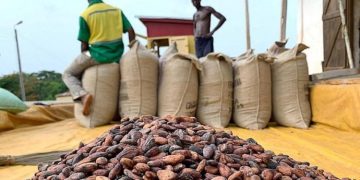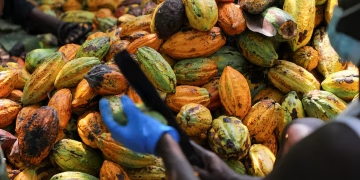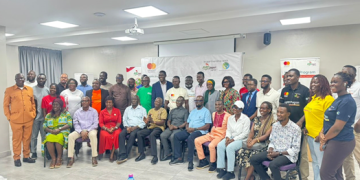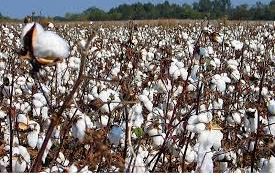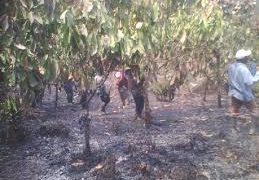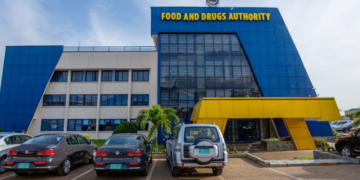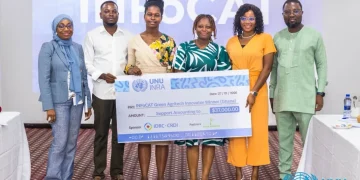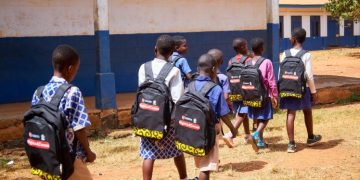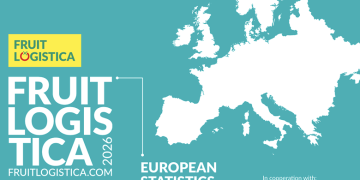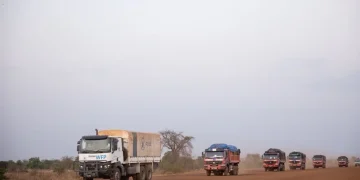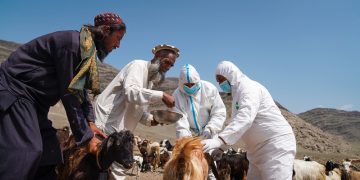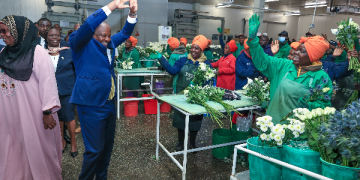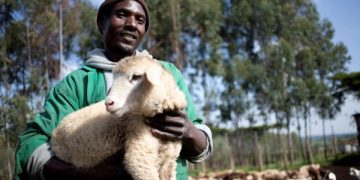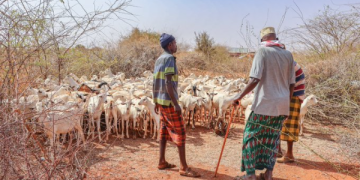Agricultural Extension Agents and other value chain actors from the northern part of the country have undergone training to equip them with enriched knowledge and skills in post-harvest management practices to reduce food loss.
The participants were drawn from the North Gonja, North East Gonja and Central Gonja Districts in the Savannah Region, Bongo, and Kassena-Nanka West in the Upper East Region and Bunkpurugu-Nakpanduri District in the North East Region.
The two-day training of trainers workshop, which ended in Tamale, sought to increase participants’ knowledge in post-harvest loss management and ensure quality and consistency of post-harvest practices delivered to farmers.
The participants would be resourced and expected to undertake step down trainings for selected beneficiaries on improved post-harvest management of grains to enhance farmers knowledge in post-harvest management.
The training of trainers workshop was in line with the European Union (EU) Food Security Response in Northern Ghana project, a three-year (August, 2023 to July, 2026) project, being implemented by Food and Agriculture Organisation (FAO) of the United Nations in collaboration with the Ministry of Food and Agriculture, Regional and District Departments of Agriculture and civil society organisations.
The project is dedicated to promoting crop-specific, agro-ecological systems and approaches and support the sustainable development of maize, millet, sorghum, soyabean, groundnut, vegetables (tomato), poultry, piggery value chains.
It seeks to improve food and nutrition security and sustainable livelihoods for vulnerable rural farming populations in six selected districts in the Savannah, North East, and Upper East Regions.
Dr Issah Sugri, Principal Research Scientist, Council for Scientific and Industrial Research-Savanna Agricultural Research Institute, who facilitated the training, said post-harvest losses continued to affect food quality and incomes of farmers, hence the training to minimise the trend.
He took participants through food security, post-harvest management, and technologies to adopt and upscale to farmers to reduce food losses and improve food quality at the farm level, during marketing and at processing levels.
He mentioned the use of PICS bags, testing grain moisture using grain meters, use of shelling machines to reduce human labour as some of the technologies to adopt to manage post-harvest losses.
Dr Sugri said, “Once you observe that the crop is mature, timely harvesting is very important. For most crops such as maize, sorghum and millet, and the cereals, you need to dry them very well to their safe moisture content level. If the crop is dried well, there is very little attack of insects and micro toxins.”
He added that “Another step is to winnow the crop very clean green and then select the appropriate storage technology such as the use of PICS bag, metal silos amongst others. You may need to apply some insecticides if your produce doesn’t have good quality at the beginning to reduce insect damage during storage.”
He urged participants to disseminate the knowledge to farmers to improve the quality of produce to ensure food security and improve their incomes.
Mr Mohammed Bukari, Director, Kassena-Nankana West District Department of Agriculture, said the training had come at the right time because “This is the season in the north that harvesting is going on. So, from here, we intend to go and step down the training to all the project communities, and the project beneficiaries to help them take care of the harvest, store it well and protect it from insect infestation.”
He said this would also ensure healthy foods for communities and the market.
Meanwhile, as part of efforts to strengthen post-harvest management and improve food security, the FAO, with funding from the EU, has delivered 15,300 PICS bags, 70 multipurpose threshers, and 72 grain moisture testers to farmers across 72 communities in six districts in the northern part of the country.
The beneficiary districts were North Gonja, Central Gonja, and North East Gonja in the Savannah Region, Bongo and Kassena-Nankana in the Upper East Region, and Bunkpurugu-Nakpanduri in the North East Region.
The intervention was to help farmers save time, reduce post-harvest losses, improve hygiene, and increase income from their produce ahead of the harvest season this year.
Source:accessagric.com














